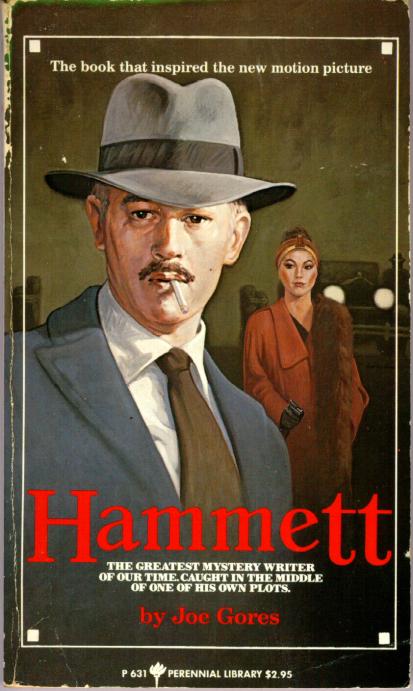
The greatest mystery writer of our times caught in the middle of one of his own plots.
Author: Joe Gores
First published in 1975. Copy reviewed: 1982, Harper & Row
Softback novel - 251 pages
ISBN: 0-06-080631-1
Price: Out of Print
 |
Hammett The greatest mystery writer of our times caught in the middle of one of his own plots. Author: Joe Gores First published in 1975. Copy reviewed: 1982, Harper & Row Softback novel - 251 pages ISBN: 0-06-080631-1 Price: Out of Print |